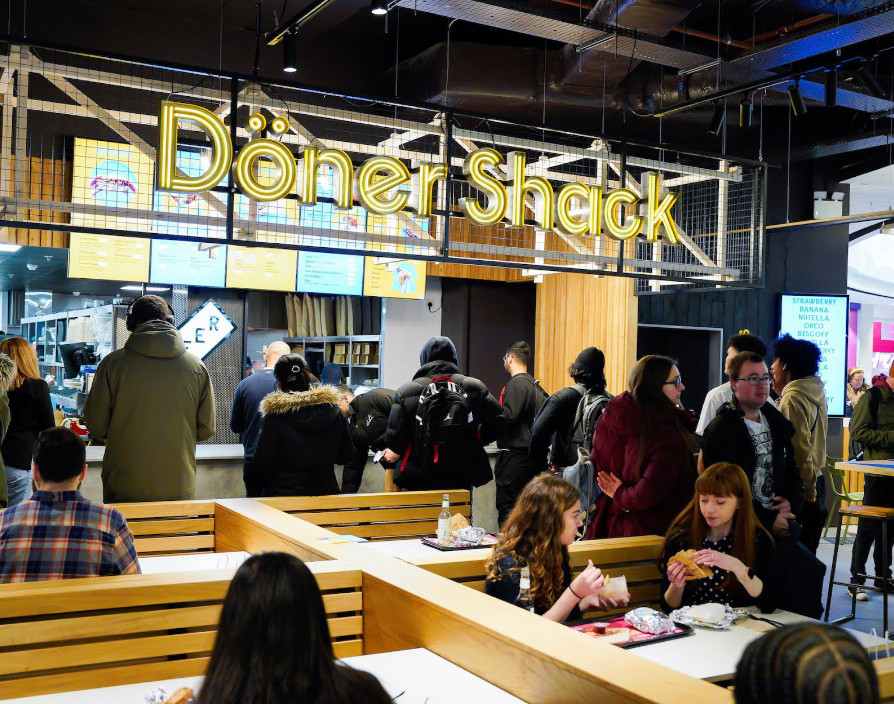Staff shortages have left many businesses in the hospitality sector struggling and wanting to find a long-term solution to the recruitment crisis. Brexit and Covid have intensified a problem that has been evolving for years, and now the restaurant industry has been left in a fragile state following more than two years of closures and restricted trading.
As consumer demand returns to restaurants, employers are still finding it a challenge to recruit and retain enough staff, particularly as so many chose to leave the sector during the pandemic when work dried up. In 2020 alone, more that 600,0001 jobs were lost, and 12,000 businesses closed as a result of the pandemic, so understanding and responding to employees’ behaviours and expectations will be essential to the recovery.
Sanjeev Sanghera, Co-Founder & Managing Director of fast-casual German-inspired street food franchise brand Döner Shack, believes there are many ways that restaurants can attract the right talent and retain their best employees by providing clear and rewarding career pathways. Here he shares his top tips on employee retention and why it is more important than ever to hold onto the good ones and not settle for less aptitude or low-performing employees.
Changing perceptions
The perception of a career in hospitality is still largely negative, and this must change if we are to achieve economic recovery in the UK. The industry needs to address these poor and inaccurate slants, particularly among young people starting their careers in restaurants. With Covid intensifying the skills and jobs crisis among young people, restaurants can offer diverse and increasingly desirable skillsets which can mean an attractive, lifelong career path for many.
Managing different generations of employees
With the average restaurant worker just 29 years old, it is important for owners to understand how to effectively manage their employees across different generations so they can streamline their operations and ensure they create great working environments. Understanding the future workforce is pivotal to the success of the restaurant industry, and if properly managed they will see their restaurant jobs as long-term opportunities rather than a stopgap to other careers.
Roles to fit values and priorities
When it comes to recruiting new employees, businesses should match the candidate’s values with those of the business. By listening and adapting to your employees’ needs and expectations, you will then be able to recognise how roles fit with candidates’ ethics and priorities. Some restaurant brands are now setting up their own development and training schemes and adapting roles to fit around candidates’ strengths as a shortage of skills hinders recruitment plans.
“We have identified that the staff we are now recruiting at our Döner Shack restaurants need a different approach to learning and development, particularly with the growing use of technology and speed of information so easily accessible. As a brand, we have a real emphasis on workplace culture and have created a space for our employees to grow and progress quickly. This is a big motivation for us and our employees when recruiting for our restaurant sites in the UK.”
Retaining good employees
Restaurants are renowned for having high staff turnover and to date have struggled to find and keep good employees. Being able to retain them is critical to a brand’s success, otherwise it is difficult to operate at a high level and remain profitable. Restaurants need to foster employee retention and keep their best employees by creating a high-performing team that is productive, engaged, and connected with the workplace.
Create a positive workplace culture
It is vital to create a positive workplace culture in your restaurant that improves teamwork, raises morale, increases productivity and efficiency, while enabling growth and development. The culture of any business comes from the top down, so it is key that restaurant owners model the behaviour and approach to work that they would expect from their team and agree the tone from the outset.
“With staffing being at crisis point, there is a big job ahead to rebuild the workforce and for people to regain their confidence from the hospitality industry, especially for those who may have been treated badly in the past and lost faith in the sector.. The restaurant franchise sector must reactivate passion into jobs again and show potential staff that hospitality is a good career choice and can be a fun and rewarding job.

































